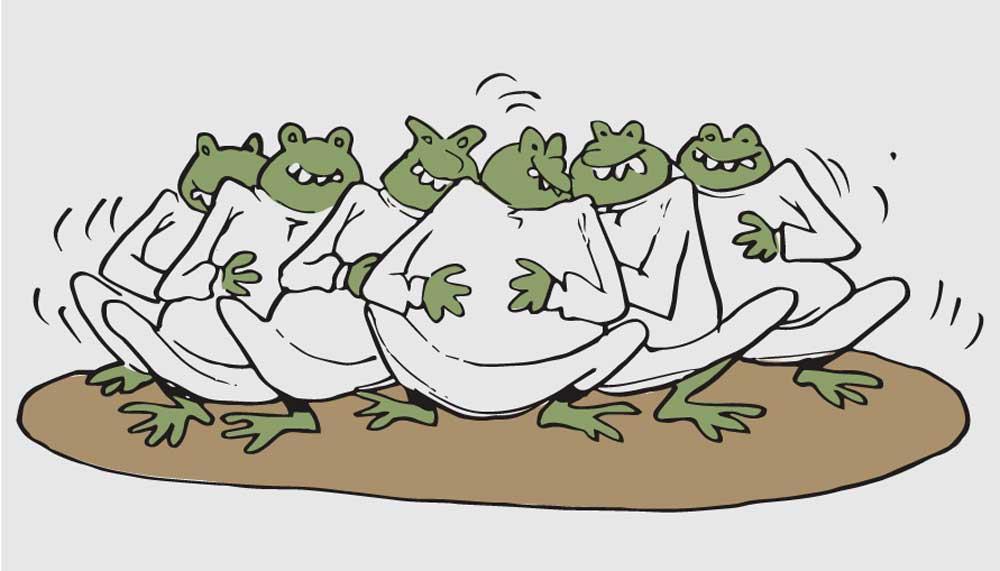13 Aug 2024 - {{hitsCtrl.values.hits}}

The run-up to any Presidential or Parliamentary election in Sri Lanka would see a plethora of crossovers which entail shameless statements by those politicians who jump from one party to another. They are amasingly brazen to venerate someone whom they ridiculed even days ago or to do the other way around.
Social media these days expose the shamelessness of many politicians who have crossed over to other parties and idolise their new leaders, with video footage of them deriding the same leaders in the past.
It is against this backdrop that the Supreme Court invalidated on August 9 the crossover by Harin Fernando and Manusha Nanayakkara from Samagi Jana Balawegaya (SJB) to the United National Party (UNP). Thus, they lost their Parliamentary seats and resultantly the ministerial portfolios they held. Yet, they still attempt to claim the moral high ground.
Interestingly, only the National People’s Power (NPP) is of the view that new laws must be enacted to prevent crossovers. The Constitution contains provisions to prevent politicians from jumping from one party to another. But many of them have survived after changing sides in the past, on technical grounds.
The crossovers have been contentious for a long time in Sri Lanka since politicians who are involved in such acts attempt to justify them morally when they are challenged legally or vice versa.
Several important issues including the personal judgment and the conscience of the politician concerned, the internal discipline of the party and the people’s mandate have to be considered when deciding the merit or demerit of defection by politicians. When the first-past-the-post electoral system was in place in Sri Lanka the conscience took precedence over party discipline and it is the other way around - party discipline takes precedence - after the Proportional Representation (PR) system was introduced in 1978.
Public opinion on the merits and demerits of crossover by politicians has changed over the years, depending on the political situation of the day. Frustrated by the high-handed actions along with the economic burden heaped on the people during the J.R.Jayewardene administration, the pro-crossover mindset had got the upper hand. People wanted at least a few ruling party MPs to stand against the government. This was further strengthened due to the state terror in the form of a killing spree in the process of suppression of the Janatha Vimukthi Peramuna (JVP) led insurrection, during the Premadasa administration.
Then, people wanted the ruling party politicians to act according to their conscience in Parliament and sever link with the ruling party. Hundreds of articles appeared in newspapers in this line of thinking. Defection by Lalith Athulathmudali and Gamini Dissanayake along with several others from the Premadasa Government in 1991 was therefore hailed by many. However, ugly and shameless incidents of summersault by politicians for power and perks in the recent past spanning over two decades have changed public opinion.
Switching parties or abandoning a party to form another is not always prompted by opportunism or greed. Regime changes always come to pass with millions of people’s minds changing their party affiliations. That is not opportunism. That is how political history unfolds. Similarly, politicians too might abandon a party to join another or to form another. However, the merit of the act is determined by the honesty and integrity they display in the years to come.
If an MP of the current government withdrew his support to it rejecting the recent moves by it to postpone the local government elections and to bring in a series of repressive laws such as the Online Safety Act and the Regulations declaring High-Security Zones (HSZs) in Colombo, it cannot be considered to be opportunism. However, again, his integrity would only be proved by his behaviour in the next few months or years.
Over ninety-five percent of defections in Sri Lanka are prompted by sheer opportunism and greed for power and perks. Opportunism and greed are the basic rules that governs the day-to-day politics of the country, not only in defections. This can only be prevented if the masses are morally strong enough not to follow them.
24 Nov 2024 38 minute ago
24 Nov 2024 2 hours ago
24 Nov 2024 5 hours ago
24 Nov 2024 5 hours ago